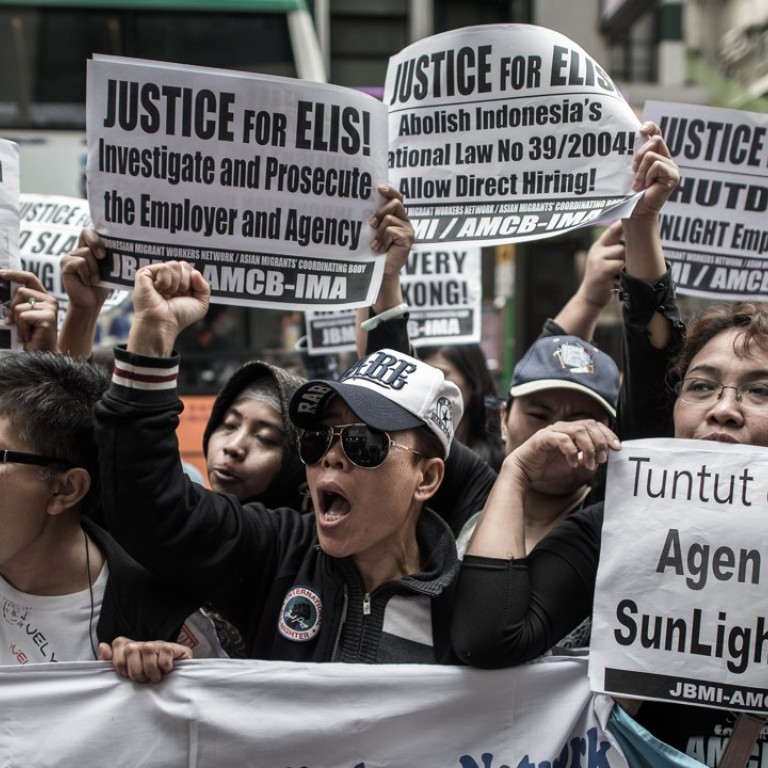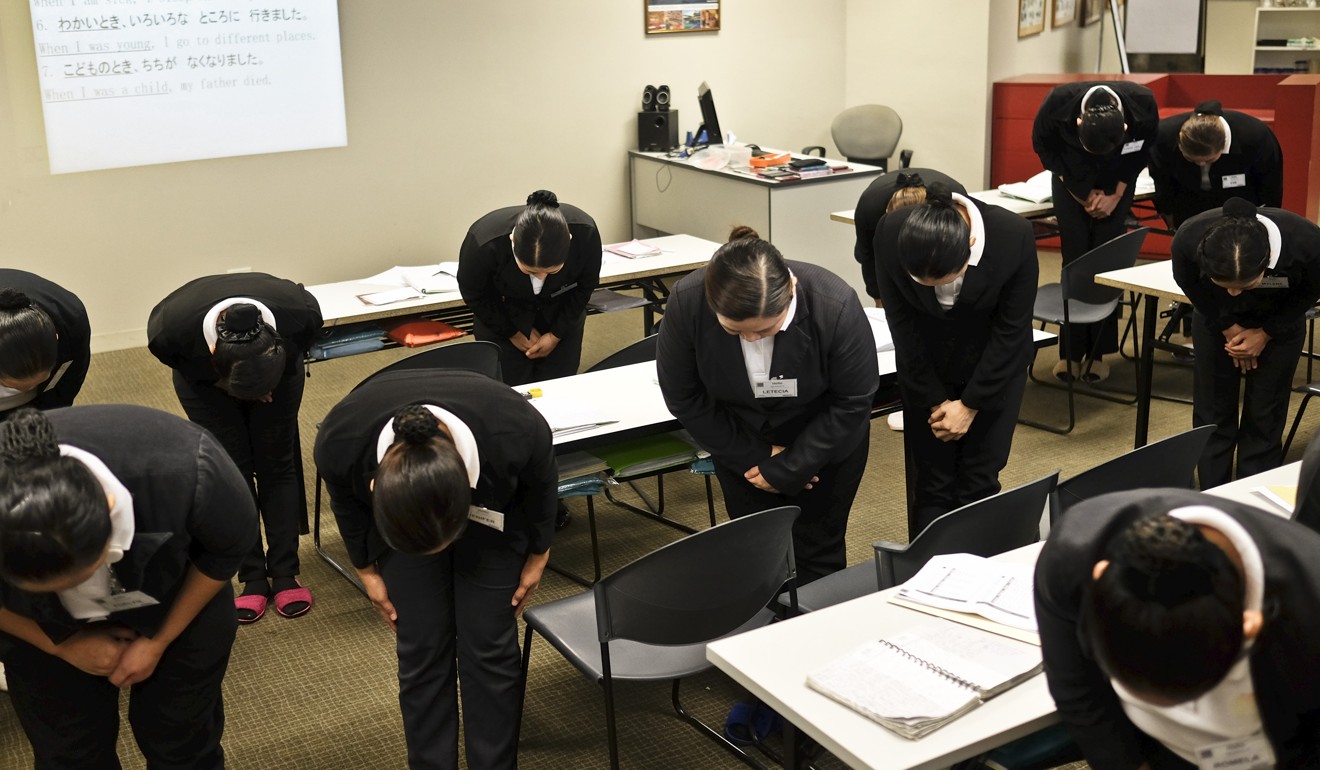
Hong Kong’s errant domestic helper agencies are everywhere and unafraid of the law
David Bishop says the recent amendment to the Employment Ordinance to crack down on widespread illegal practices among helper employment agencies is a step in the right direction. Unfortunately, the agency tasked with the job appears to be underfunded
On February 9, the Hong Kong government took a big step towards securing the city’s economic future and rehabilitating its reputation for rule of law. That day, the Employment Ordinance was amended to curb the rampant abuses of one of Hong Kong’s largest black markets: domestic worker employment agencies.
Domestic workers in Hong Kong are at the mercy of ruthless agencies. Why do we allow it?
Without major policy and significant lifestyle changes, Hong Kong would fall apart without helpers
Considering that the current number represents 10 per cent of our working population, this is significant.
In this #MeToo era, I hope we can all agree that female empowerment is great – but only so long as it does not come at the expense of other women.
Having been part of a group that brought legal claims against agencies that broke the law and lobbied the government to include criminal penalties and extend the statutory time limit for legal claims, one thing has become clear: the government is not providing enough resources to police the industry.
There are more domestic worker agencies in Hong Kong than McDonald’s, 7-11 and Starbucks outlets combined. It is apparent that such an industry cannot exist but for illegal behaviour. By creating intricate corporate webs, criminals have been able to avoid prosecution.

In the past, penalties against agencies were so low that licensees did not fear prosecution. But with the amended ordinance, theoretically, criminal agencies should be wary. But even now, there is really very little fear of broad prosecution.
There are more domestic worker agencies in Hong Kong than McDonald’s, 7-11s, and Starbucks combined
On Tuesday, I visited the Employment Agency Administration to report an agency that we had watched since December, with evidence of their illegal behaviour. This agency had already had its licence revoked on two occasions, and the sole corporate shareholder was dissolved by the government in 2011, meaning that the sole owner did not exist. This was, essentially, a ghost company that preyed on workers and employers. Every time it was shut down, it reopened in the same location, with the same contact information, changing its name and pasting a new storefront sign over its previous one.
When I presented our case to the government investigators, they were not surprised as they knew of the agency’s history. But while I was assured that they would do their best to shut the agency down for good, their cynicism was palpable.
Looking for a domestic helper? Two Hong Kong students have made the job easier with new mobile app MamaHelpers
I noticed that the Employment Agency Administration’s office lobby was so small that I could touch the walls on both sides by extending my arms. Why? Does the government not see its work as important? Given their lack of resources and space, it would be impossible for its officers to work closely with employers and helpers to ensure the proper policing of agencies.
Millions of jobs, now and in the future, are directly affected by this agency’s work. Increasing funding to it seems like a prudent investment that would pay for itself several times over. If we are going to avoid the pitfalls decried by Dr Law and the Labour Department, we must act now.
David Bishop is a principal lecturer in the Faculty of Business and Economics at the University of Hong Kong

